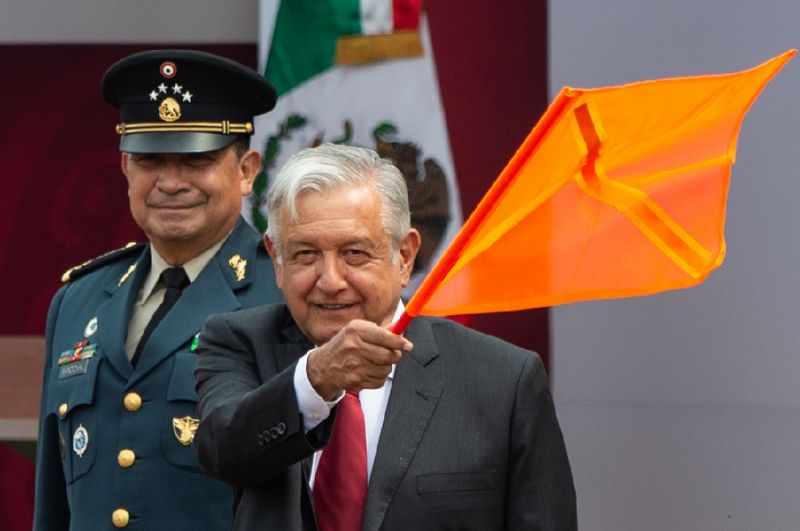Mexico City (AFP) – For a groundbreaking ceremony, there was suspiciously little ground broken as President Andres Manuel Lopez Obrador symbolically inaugurated work on a new Mexico City airport — a pet project analysts warn could go badly wrong.
Smiling and waving an orange flag, the anti-establishment leftist stood before a line of heavy construction equipment last Monday, declaring work was officially under way to turn the Santa Lucia military air base into a second airport for the sprawling Mexican capital.
But there was no sign of that from the bulldozers, which stood by silently throughout — and could stay that way for some time.
The new airport faces heavy turbulence, aviation experts say.
The biggest problem is the ring of mountains that surrounds Mexico City, limiting the routes for take-off and landing, and making it a logistical nightmare to operate two separate airports, according to critics.
“Some people say, ‘There are other cities with more than one airport.’ That’s true, but they don’t have Mexico City’s orography,” said Mexican pilot Angel Jimenez, a 58-year-old veteran with 22,000 hours of flying experience.
“We’re surrounded by a system of mountains shaped like an inverted horseshoe. The only flight pattern for ascents and descents is via the north. There will be a huge amount of air traffic,” the pilot told AFP.
As we all know, Lopez Obrador called the $13-billion Texcoco Airport project a “bottomless pit” rife with corruption. He canceled it after holding a controversial referendum that had no independent oversight and was plagued by irregularities.
Now Lopez Obrador promises that Santa Lucia is going to be an “austere” alternative: as the current airport will keep operating and easing its load by converting the former military base into a second civilian airport.
The repurposed base is to be called the Felipe Angeles airport, in honor of a hero of the Mexican Revolution who fought alongside Pancho Villa before being executed by firing squad in 1919.
It will cost around $4 billion, the government estimates — though canceling the Texcoco airport will also hit the country with around $5.2 billion in sunk costs, according to its calculations.
Source: https://www.afp.com/

